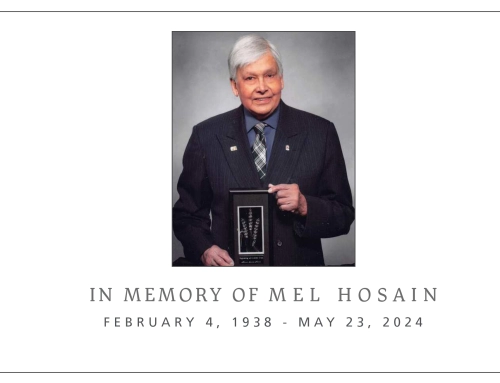The Legault government recently announced two massive construction and renovation projects: a $1 billion call for tenders for an expedited 30-dwelling construction project for the elderly and a $1.7 billion budget for projects to modernize Quebec schools.
Via Association des Architectes en pratique privée du Québec (AAPPQ)
Shall we suppose that these projects, which are intended to ensure the safety and well-being of our senior citizens and children, will be designed following a lowest-cost approach similar to the one that guided construction of the Champlain Bridge in 1957? This will not be the case today, but it appears that the government has maintained this mindset in 2019.
One year ago, on June 27, 2018, the former government proposed a review of the method for granting public architecture and engineering services contracts for Quebec’s two largest public-sector buyers: the Ministère des Transports and the Société québécoise des infrastructures.
The proposal has raised serious concerns, as all the new methods it offers invariably lead to favouring the lowest bidder.
The former minister in charge, Robert Poëti, was aware of the problem and withdrew the regulatory initiative in August 2018. He set up a task force comprised of senior officials from the Conseil du trésor, public sector buyers, and industry representatives in order to review contract award methods.
The task force continued its work after the October 2018 general elections, but no meetings have been held since December 6, 2018.
Worrisome Delays
Since then, a study by independent experts has confirmed that the quality-price method proposed by the government more or less systematically favours the lowest bidder. Unfortunately, the study did not succeed in resuscitating the task force, nor did it elicit any reaction from government bigwigs, although it should be a matter of concern for the current minister in charge, Christian Dubé.
The Conseil du trésor has limited recent action on this matter to selecting an accounting firm to evaluate the “perception” of some industry stakeholders on the proposed award methods. It by no means involves the safety, quality or lasting nature of infrastructures, which are closely tied to their design.
The most eloquent example is that of the old Champlain Bridge, which must soon be dismantled after a short life and countless repair works, with the knowledge that the poor decisions that led to its construction were directly guided by a search for the lowest price. We know now that out of the 29 variations studied at the time, the successful bid was quite simply the cheapest, the one that led to the dreadful result we know today.
We wish to emphasize the importance of basing the selection of professionals on quality rather than the lowest price. The benefits are manifold: better planning with accounting for sustainable development, incentives to innovate, compliance with the most rigorous timetables and budgets, and fewer disputes. Architecture and engineering projects entrusted to the lowest bidder are incompatible with the optimization of design and lifespan.
Now that significant projects are underway, it is important that we learn the lessons of the past and demonstrate vision. Can we once and for all set aside methods that favour the lowest bidder so that we may ensure quality infrastructures for current and future generations?
Signed by:
David Prud’homme
Président-directeur général
AluQuébec
Clément Demers
Architecte, urbaniste et gestionnaire de projet
Denis Riopel
Architecte
Francis Lacharité
Président
ASHRAE Montréal
Jean Simard
Président et chef de la direction
Association de l’aluminium du Canada
Anne Carrier
Présidente
Association des Architectes en pratique privée du Québec
Bernard Bigras
Directeur général
Association des architectes paysagistes du Québec
Stephan Doré
Président
Association des estimateurs et des économistes de la construction du Québec
John Gamble
Président et chef de la direction
Association des firmes de génie-conseil – Canada
André Rainville
Président-directeur général
Association des firmes de génie-conseil – Québec
Patrick Gariepy
Président
Association des travaux publics d’Amérique – Chapitre du Québec
Phyllis Lambert, CC, GOQ, CAL, FIRAC
Directeur fondateur émérite
Centre Canadien d’Architecture
Gérald Beaulieu
Directeur
Centre d’expertise sur la construction commerciale en bois
Jack Benzaquen
Président
Centre d’expertise et de recherche en infrastructures urbaines
Julie Bédard
Présidente et chef de la direction
Chambre de commerce et d’industrie de Québec
Roger Légaré
Président et chef de la direction
Conseil des infrastructures
Yves-Thomas Dorval
Président-directeur général
Conseil du patronat du Québec
Éric Côté
Président-directeur général
Corporation des entrepreneurs généraux du Québec
Denis Leclerc
Président et chef de la direction
Écotech Québec
Stéphane Forget
Président-directeur général
Fédération des chambres de commerce du Québec
Mike Brennan
Chef de la direction
Institut royal d’architecture du Canada
Hellen Christodoulou
Directrice Régionale-Québec
Institut canadien de la construction en acier
Martin Houle
Directeur-fondateur
Kollectif
Gérard Mounier
Conseiller stratégique, responsable du groupe Infrastructure
Lavery Avocats
Henri-Jean Bonnis
Président du conseil d’administration
PMI-MONTRÉAL INC.
Michèle Thibodeau-DeGuire
Principale et présidente du Conseil d’administration
Polytechnique Montréal
Christiane Pelchat
Présidente-directrice général
Réseau Environnement
Jean-Pierre Chupin, Ph.D
Chaire de recherche du Canada en architecture, concours et médiations de l’excellence
École d’architecture, Université de Montréal
Raphaël Fischler
Doyen de la faculté de l’aménagement
Université de Montréal
Jacques White
Directeur et professeur titulaire
École d’architecture, Université Laval










